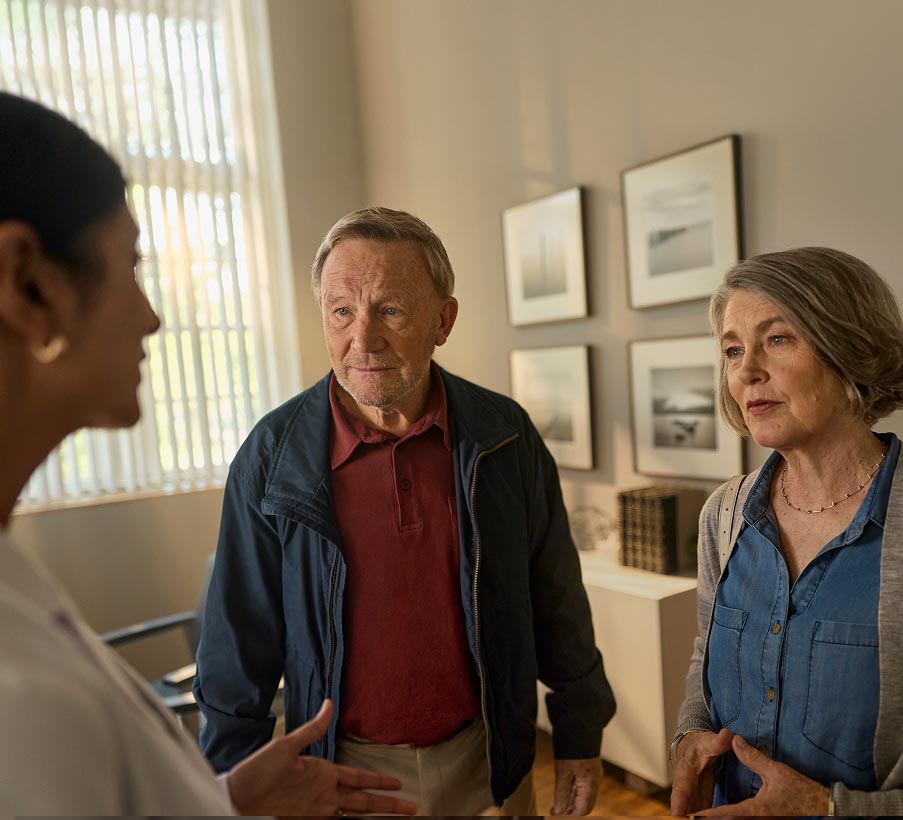Living with Parkinson's, or caring for someone who is, isn't easy. Symptoms like Parkinson's-related
hallucinations and/or delusions
may add to the challenge. But what if there was a way to help you mind your mind? NUPLAZID® is the first and only medicine specifically approved to treat Parkinson’s-related hallucinations and delusions and to reduce the frequency and/or severity of those symptoms
- without affecting motor symptoms.*
*In the clinical trial, the majority of patients who took NUPLAZID experienced fewer and/or less severe hallucinations and/or delusions associated with Parkinson’s disease psychosis when compared to placebo. While on NUPLAZID, some patients did not experience any hallucinations and/or delusions at 6 weeks. NUPLAZID had no effect on motor symptoms compared with a placebo at 6 weeks. Not everyone will respond to NUPLAZID. Individual results may vary.









 IMPORTANT SAFETY INFORMATION
IMPORTANT SAFETY INFORMATION